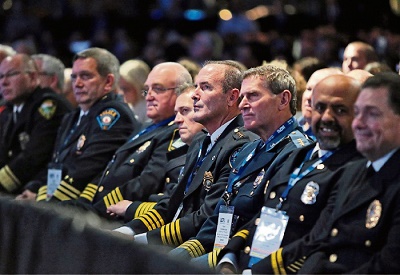Battle of Mosul: ISIS Desperation May Result in Use of Its Chemical Weapons

Military experts had predicted that the Islamic State of Iraq and Syria’s (ISIS’s) use of weapons of mass destruction (WMD) — especially chemical weapons — in the jihadists’ attempt to continue holding Iraq’s second largest city was only to be expected, according to the Homeland Security News Wire on Tuesday.
The experts — diplomatic, military and law enforcement — claim that ISIS is emulating the use of chemical weapons by President Bashar al-Assad’s military in Syria. Although most governments won’t admit it, the WMD strategy is what helped Assad to maintain power in the face of brutal terrorist groups such as ISIS, Nusra Front and other Islamic radicals.
As the U.S.-led coalition prepared for their attack to liberate Mosul from ISIS, even U.S. anti-terrorism experts had warned that ISIS would likely use chemical weapons to slow down the progress of coalition forces and terrorize the residents, according to George Laughlin, a former member of a police counterterrorism unit. “While during the initial invasion of Iraq the U.S. government was careful to protect its soldiers and Marines from chemical weapons, this time around there appears to be little if any preparation for WMD attacks,” Laughlin claims.
According to a Pentagon report, ISIS took the first step in its chemical strategy on Thursday by torching the Mishraq Chemical plant and sulphur mine, located south of Mosul.
The toxic emissions included lethal sulphur dioxide and hydrogen sulphide. When combined with residue from the already blazing oil wells, it is deadly for people caught in the open or without gas masks.
“Military experts say health effects from the toxic fumes from oil and sulphur will likely subside in about eighteen months, but the toxic clouds could harm much of the plant and animal life in the area and make it difficult for local farmers to return to their fields until then,” according to the Pentagon statement.
Pentagon press operations director U.S. Navy Capt. Jeff Davis told reporters on Tuesday that the coalition forces continue to make progress in their effort to liberate the city from ISIS control.
“The President [Barack Obama] appears to be counting on having positive news for the American people especially during the run up to the presidential election. The man whose ‘red line’ is now probably somewhere in Europe continues to avoid using the ISIS acronym because he doesn’t want to remind voters of his statements regarding Syria,” said Sid Franes, a former U.S. Marine intelligence operative and New York detective.
The captain said ISIS’s foreign fighters — whose passports were taken from them or publicly burned — are the enemy troops largely left in Mosul. “Those are the people we expect to stay in Mosul and fight to the death,” he said, adding in other cases, they’re seeing ISIL’s mid-level management leave or prepare to leave. “Some have moved their families] out in advance of [the Iraqi liberation of Mosul], indicating they might try to make a break for it.”
“As friendly forces advance to liberate Mosul, the Iraq government has encouraged residents to stay in their homes when possible so the city can be cleared without having large numbers of people flee,” Davis said.


